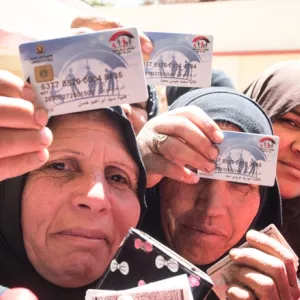Cash transfers and women’s decision-making in Egypt: Still a man’s world
BY HODA EL-ENBABY, DANIEL O. GILLIGAN, NAUREEN KARACHIWALLA, YUMNA KASSIM AND SIKANDRA KURDI Cash transfer programs have become one of the most popular ways to reduce poverty in low-income countries and have made substantial strides in doing so. Recently, attention has turned to the design of these programs, such as whether to target transfers explicitly to women, as well as

Cash transfers and women’s decision-making in Egypt: Still a man’s world
Cash transfer programs have become one of the most popular ways to reduce poverty in low-income countries and have made substantial strides in doing so. Recently, attention has turned to the design of these programs, such as whether to target transfers explicitly to women, as well as their impacts beyond household spending. The motivation behind targeting transfers to women is the assumption that providing cash directly to women will also give them more say in how to spend it and generate different or more preferrable outcomes. Previous studies show that women tend to spend more money on children and that transfers provided to women have increased investments in children’s health and education (Hidrobo et al. 2018; Bastagli et al. 2016; Fiszbein and Schady, 2009).
Photo credit: Emad Abd ElHady/World Bank

